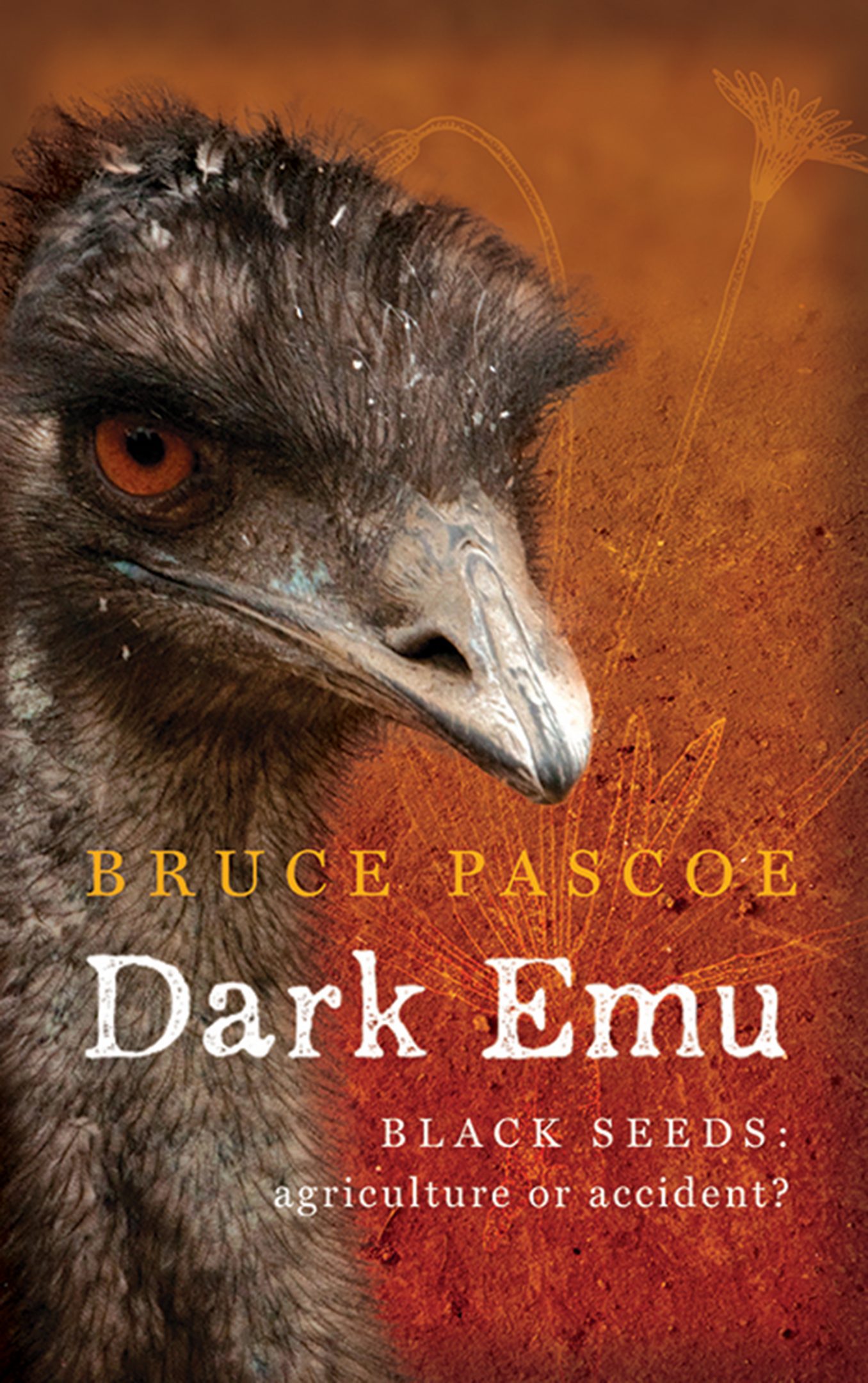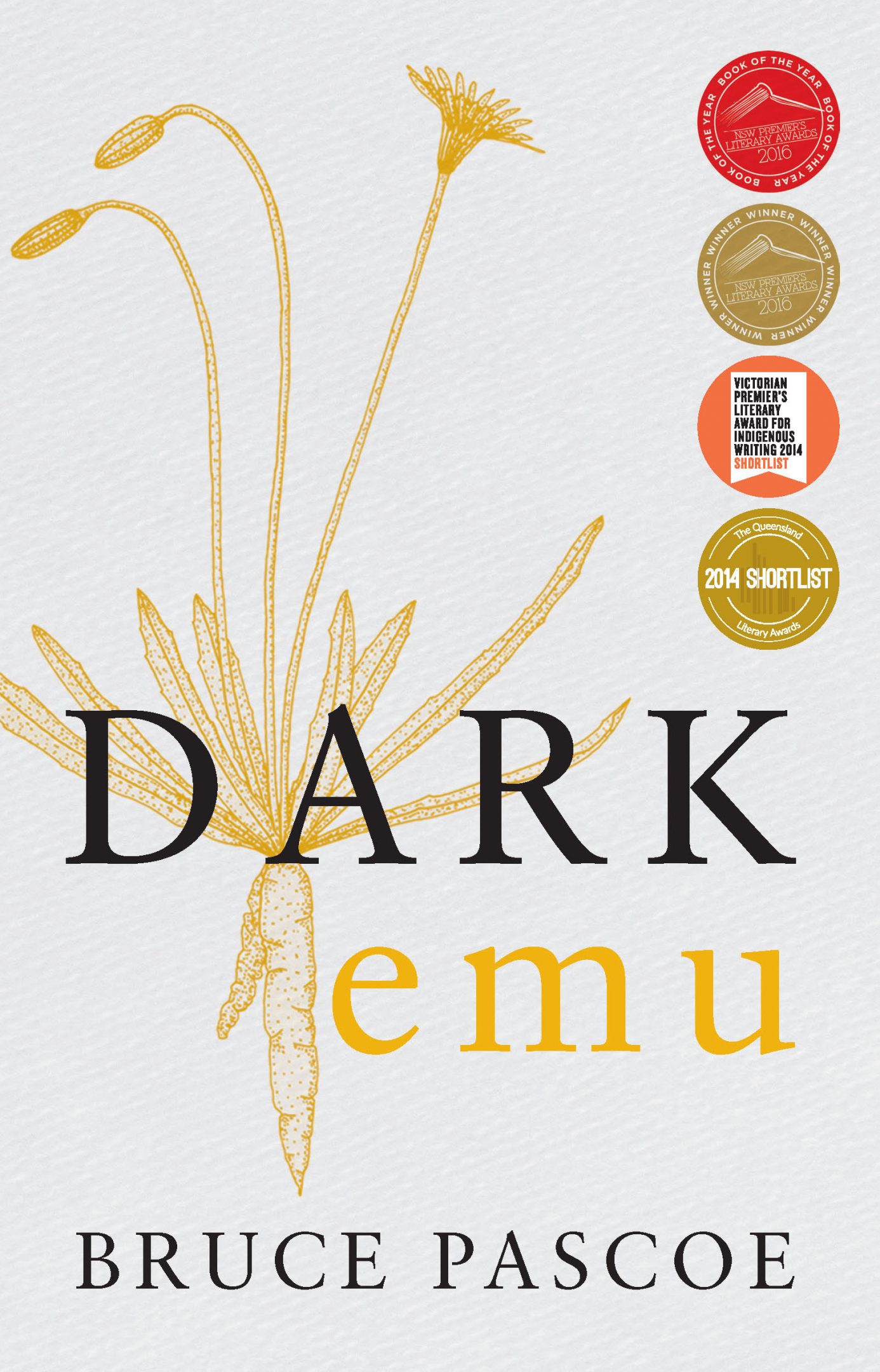This week the Australian Federal Police confirmed that it would not be pursuing a request to investigate the Aboriginal heritage of author Bruce Pascoe referred to them by Peter Dutton. The original complaint, made by an Aboriginal woman named Josephine Cashman, comes after months of intense campaigning from Andrew Bolt, writers in conservative journal Quadrant, and a handful of semi-anonymous bloggers to question the integrity of Pascoe’s bestselling book Dark Emu and, in a pretty tasteless ad hominem, Pascoe’s own identity. The timing of the referral, while Pascoe has spent weeks toiling as a volunteer firefighter in Mallacoota, has also shocked many.
This is all impressive work for a book that boasts many lengthy passages dedicated to yam cultivation and different varieties of native grass, that draws largely on century-old writings of long-dead white men. But why does it have the likes of Andrew Bolt reaching for the caps lock key?
What does the book say?
Originally published in 2014, Dark Emu has become a sleeper hit with over 100, 000 copies sold, over two dozen reprints and a student edition Young Dark Emu released last year. Building on the ideas of Pascoe’s earlier books such as Convincing Ground (2007) and other historians such as Bill Gammage (whose 2011 book The Biggest Estate On Earth is also essential reading), Dark Emu’s basic premise is to challenge the idea that before the British Empire arrived, the continent was populated primarily by itinerant hunter-gatherers.
In Dark Emu Pascoe revisits the original journals of the first European explorers and settlers to encounter First Nations societies around the continent, and the land itself before it was reshaped by land clearing, violent dispossession and the vegetation-destroying teeth and feet of sheep. By taking a fresh look at these accounts, he’s giving readers a nudge to rethink our understanding of this country before it was called Australia, how it has been managed for thousands of years, and how we can do better in the future.
 Dark Emu’s original 2014 edition (Magabala Books)
Dark Emu’s original 2014 edition (Magabala Books)
 The book has since sold over 100,000 copies (Magabala Books)
The book has since sold over 100,000 copies (Magabala Books)
It’s
bleakly ironic that these journal entries, written by British men who
represented the machinery of colonisation rumbling into action, are our best written
record of the land and peoples of this continent that would soon be invaded. As
Pascoe reflects in Young Dark Emu, “few came to Australia to marvel at a
new civilisation – they had come to replace it”. And yet by 1839, explorers
like George Grey, then a Lieutenant and later governor of South Australia,
writes of finding “frequent wells, some of which were ten and twelve feet deep …
altogether executed in a superior manner” in Western Australia, along with “three
and a half consecutive miles … of land literally perforated with holes the
natives made to dig this root”. Of this extensive yam crop, Grey reflects that “more
had been done to secure provision from the ground by hard manual labour than I
could believe it in the power of uncivilized man to accomplish”.
Elsewhere Pascoe reflects upon ancient stone fish traps at Brewarinna in New South Wales, and compares them to similarly sophisticated forms of aquaculture observed along the Murray in 1843 by cattle drover James Kirby. But these are just a few examples. In Tarnanthi 2019 exhibition Bunha-bunhanga: Aboriginal agriculture in the south-east, Pascoe, artist Jonathan Jones and researcher Zena Cumpston further illustrate these points through colonial paintings and Aboriginal tools from collections around the country.
In their haste to size up the land for colonisation, Pascoe argues that the authors of these accounts also accidentally describe rich and sophisticated forms of land use, civilisation and governance that already existed. Practices that, perhaps, resemble many of the defining traits of ‘agrarian societies’.
 Installation view: Bunha-bunhanga: Aboriginal agriculture in the south-east, Tarnanthi 2019, Art Gallery of South Australia, Adelaide
Installation view: Bunha-bunhanga: Aboriginal agriculture in the south-east, Tarnanthi 2019, Art Gallery of South Australia, Adelaide
The history wars
Note the earlier use of ‘written record’. As Pascoe told The Adelaide Review last year, he chose to base Dark Emu on primary colonial documents for a reason: for a long time, and particularly during Australia’s ‘history wars’ of the late 90s and early 2000s, authors such as Keith Windschuttle often held up the official, written record as the benchmark by which all Australian history must be measured. It’s a kind of bad faith historiographical purism that lets writers in Quadrant and other publications question many of the darker corners of our history, from the scale of massacres and violent dispossession to the Stolen Generations.
In this world view, the oral traditions and historical perspectives of First Nations people are largely discounted, and anything that isn’t on paper, well, maybe just didn’t happen. This oversimplification doesn’t pass muster: settlers and perpetrators of frontier violence were often not so different from you or I that they didn’t recognise many of their actions were morally questionable or illegal. This is why the colonial record of massacres and violence is often wrapped in euphemistic language, or just left out. That we can read the accounts in Dark Emu today is either a happy accident, or, as Pascoe argues, a sign that their authors were so focussed by their mission of empire-building that they could scarcely recognise the forest for the trees (or the oldest living civilisation on earth living among it). So, by strictly using these sorts of records, and however ambitious his interpretations, Pascoe sought to play the game by the very rules of those who are now his loudest critics.
This, of course, ties into the complexity around Aboriginal identity and Cashman’s complaint. For over two centuries First Nations peoples have been subject to abduction, sexual violence, massacres, assimilation and cultural erasure, processes which often don’t leave a precise paper trail. As NITV’s Jack Latimore and academic Professor Marcia Langton have summarised, this is why the job of deciding who belongs to what Aboriginal group must fall to the Elders and people of that community – not Andrew Bolt, not someone adjacent to that community, not a self-described “army of Boomer grannies and grandpas armed with keyboards”, and certainly not Peter Dutton and the AFP.
But it’s a reflection of the shallowness of many critiques of Dark Emu, and the agendas of its critics, that Pascoe’s identity has become so central to the campaign against his work.
Why is agriculture so contentious?
The longstanding image of pre-colonisation Aboriginal people as primarily hunter-gatherers has an expressly political purpose: it reinforces the legal fiction of terra nullius, skull-measuring race science and notions of ‘advancement’ used to justify British invasion. The framing of Aboriginal societies as solely nomadic, with lives that were based around finding and following food wherever it is available, ties into the flawed idea that because Aboriginal societies did not build huge Western-style cities, or transform the land to suit their needs in a way that European cultures recognised, their connection to and sovereignty over their land was somehow different, somehow lesser. Or worse, non existent.
This
is where Dark Emu is a particularly important read for white and
non-Indigenous readers: by reevaluating First Nations societies on the terms
Anglo-Australian culture has long used to invalidate their claims to country,
their knowledge of how to manage it and in many instances their right to even
exist, Pascoe invites us to reflect on the past and think good and hard about
our future.
In doing so, Dark Emu is a rousing call to action to shake modern Australia out of those old colonial mindsets that not only continue to alienate Aboriginal people from their land and identity, but view the country itself as a resource to be colonised, exploited, owned. Because, well, look around: that approach has brought more than its share of problems to this continent.
That’s why people keep telling you to read Dark Emu – but it’s also why you absolutely should not stop there.
UPDATE: Bruce Pascoe has withdrawn from the 2020 program, citing the impact of bushfires on his home in East Gippsland
Walter is a writer and editor living on Kaurna Country.
Get the latest from The Adelaide Review in your inbox
Get the latest from The Adelaide Review in your inbox